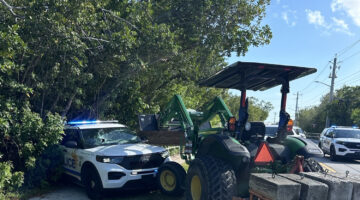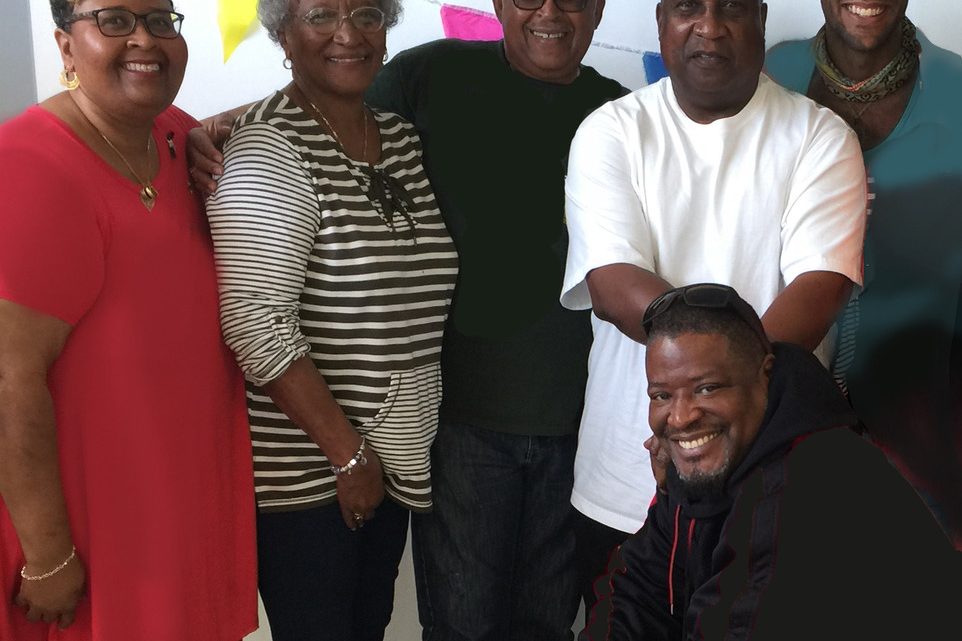Theater Review /The Piano Lesson, a great reading
By Joanna Brady
With musician Coffee Butler playing in the background, what better way for Key Westers to celebrate Black History Month than to attend a reading of August Wilson’s compelling play, The Piano Lesson?
The play was written in 1987, and is the fourth in Wilson’s famed Pittsburgh cycle (he is also the author of “Fences”) Very well received, in 1990 it won the Drama Desk Award for Outstanding Play, the New York Drama Critics’ Circle Award for Best Play; the coveted Pulitzer Prize for Drama, It also garnered the Tony for Best Play, and the Peabody Award. In 1995-6, it won two Emmys for outstanding play made for television.
With those credentials, this play was destined for sure success. The Frederick Douglas gym was the ideal venue for it. The reading was directed by Wilhelmina Lopez-Martin, who also provides the narration. She is sister of Clayton Lopez, who reads the part of the conciliatory Doaker. Joan Yvonne Allen Leggett is a convincing Berniece, stubborn, and unwelcoming.
Also excellent is Glendwood Lopez who is terrific as a wannabe minister. Richard Quint plays Wining Boy, and besides his excellent speaking voice, sings very well. Detra Saila Dor is good as the shy Maretha.
Last but certainly not least, Gil Parker Jr., a local mixologist, is phenomenal as Boy Willie, and is the catalyst of the entire show, interacting with all the others actors in every scene. I hope to see more of Parker in future productions.
The story, featuring an African American family a few generations out of enslavement, takes place in 1936 Pittsburgh.
Boy Willie Charles and his friend Lymon—both recently released from penitentiary arrive at the Pittsburgh home of Berniece, Boy Willie’s widowed sister. The two men have driven to Pittsburgh from Mississippi in a truck full of ripe watermelons. When he arrives at his sister’s home, Boy Willie announces to Berniece an ambitious plan: He wants to buy a parcel of land in Mississippi on which the Charles family’s ancestors served as slaves and sharecroppers. Boy Willie has saved some of the money he will need, and he intends to sell the watermelons in his truck to raise more.
For Boy Willie to acquire enough cash to make the purchase, however, Berniece must agree to sell the old piano in her living room and split the proceeds with her brother. Although the piano has been in Berniece’s possession since she moved to Pittsburgh, Boy Willie claims half ownership of the instrument.
Berniece strongly opposes the sale of the piano and it becomes clear why. Doaker and Wining Boy, Berniece and Boy Willie’s uncles, detail its complicated history. In 1856, generations earlier, the piano was acquired by Robert Sutter, who owned members of the Charles family. The piano was an anniversary gift from Sutter to his wife, Ophelia. Lacking cash to buy it, Sutter acquired the piano by trading two Charles family slaves, Mama Berniece and her nine-year-old son Walter, breaking up the family.
Sutter’s wife was happy with the piano but missed her slaves, so Sutter had the family’s husband/father (who was a carpenter and too valuable to sell), carved their likenesses on the piano. In 1911, Boy Willie’s father stole the piano from the Sutters; in retaliation he was killed.
Because the piano means so much to Berniece—costing as it did their father’s life—she is adamant. She will not sell the piano and she wants Boy Willie out of her home as soon as possible.
Boy Willie claims that half the piano is his and he wants to sell his half. In a King Solomon-like situation, he enlists his friend Lymon to help him steal the piano from Berniece. He claims he will sell it and give her half. She still wants no part of it. In the last scene of the play, Berniece calls to the ancestors, and Avery blesses and performs an exorcism on the evil spirit causing family dissentian in the piano. Boy Willie finally understands that there is no escape from living his ancestral legacy and the only way to benefit from it is to learn from it.
Altogether, a well worthwhile reading. Two days only, Feb. 15-16. Fringetheater.org/305-731-0581
(Joanna Brady is a local writer, author of the historical Key West novel, The Woman at the Light, published by St. Martin’s Press)
[livemarket market_name="KONK Life LiveMarket" limit=3 category=“” show_signup=0 show_more=0]




No Comment